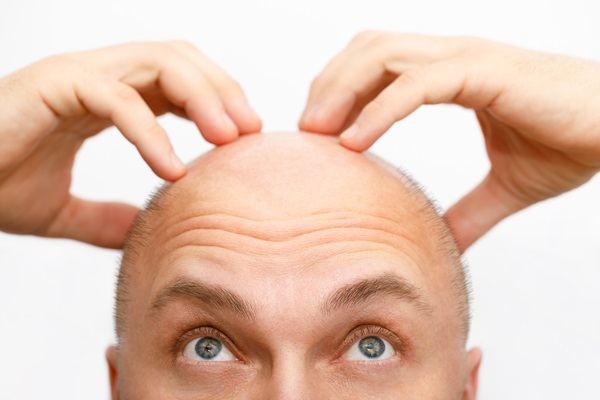The Benefits of Non-Surgical Hair Restoration Solutions

A non-surgical hair restoration addresses hair loss or thinning without the stressful and costly procedures. Most people do not like painful scalp surgeries. Non-intrusive hair replacements are less traumatic on the scalp. If you are considering having non-surgical hair restoration solutions, here are the details.
Guaranteed results
Many hair replacement surgeries are unsuccessful. Each try ends up traumatizing the tissues and muscles of the scalp. Genetics can play a role in the failure of these procedures. Medications may not always be effective for some people. A non-surgical hair restoration procedure always gives guaranteed results. It also gives instantaneous results.
Hair loss can be depressing. A person’s esteem lowers because the loss of hair can affect one’s physical appearance. Surgery and medications for hair replacement can be exhausting. Waiting for results can be taxing. It often takes a long time before anyone sees results. A non-surgical hair restoration procedure can give results right away.
Painless
Going through non-surgical hair restoration is a painless experience. In a hair transplant, there is pain after the procedure. The recovery may take up to a week. Managing pain with medications is common. Infection and scarring are also downsides of surgical hair procedures.
Does not depend on donor hair
The surgeon takes hair follicles from one part of the body in a traditional hair transplant procedure. These follicles are donor hair. Then, the surgeon moves these healthy follicles to the balding or hairless part of the body. Patients, who do not have donor hair or enough healthy follicles, resort to non-surgical hair restoration. The process does not use donor hair, and that is why there will be no problem when it comes to restoring hair follicles.
Non-intrusive
A non-surgical hair restoration procedure is not intrusive. It does not involve incising the scalp’s skin and muscles. The patient does not even need a general anesthetic. This saves the patient from side effects of anesthesia, pain, scarring, bleeding, and infection. Instead, the patient enjoys the results of the procedure without stressing about adverse effects.
Reversible
A hair transplant yields permanent results. The patient has to live with the results even if they are not desirable. The patient who has non-surgical hair restoration can decide to stop wearing the restoration or stop the treatments. There is no pressure in forcing oneself into staying with the hair restoration.
Convenient
Going through a non-surgical hair restoration does not take long at all. It takes one appointment to start and finish the procedure. This is good for those who have busy schedules. Once the treatment is over, the patient merely has to wait for the results.
Types of non-surgical hair restorations
Genetics is a significant factor in male or female pattern baldness. It can be worrisome if one sees strands of hair on the pillow. Advancements in hair treatments offer three non-surgical options. Below are the three types of non-surgical treatments you should consider:
Many shampoos and conditioners offer treatments for hair loss. Combinations of different compounds can help trigger the regrowth of healthy hair strands. A hair doctor can help decide which one can help the most. Topical treatments include hair loss concealment, hair strengthening, and hair follicle rejuvenation. They also help stimulate the nutrient exchanges in one’s hair bulb.
Platelet-rich plasma treatment
This treatment needs to take a sample of the patient’s blood. The hair doctor will process the blood to take the platelet-rich plasma. After numbing the scalp, the hair doctor will inject the plasma into the scalp one centimeter apart. Washing the treated hair the next day is allowable. There could be irritation and redness for one to two days. Going to a follow-up appointment months later can determine if the patient needs another treatment.
A hair doctor can prescribe medications for hair health. It controls the hormone that causes the hair follicles to shrink in men. These medications can prevent hair loss. The treatment can return the hair follicles back to normal.
Non-surgical hair restoration can bring back your crowning glory
Suffering from hair loss is difficult. The main side effect is depression and poor self-image. Decades ago, a hair transplant procedure was the only way to regain hair follicles. Modern technology now gives many people the chance to have healthy, strong hair without surgery. An appointment with your hair doctor can bring you a rejuvenated look with non-surgical hair restoration in no time.
Get more information about Dillon Hair Restoration in Schaumburg at http://dillonhair.com.
Check out what others are saying about our services on Yelp: Non-Surgical Hair Restoration in Schaumburg, IL.
Recent Posts
Hair loss can usher in mixed emotions and damper your self-esteem, whether or not you were expecting the day. Fortunately, hair plugs or grafts can provide patients with a full head of their natural hair. If thinning or balding is something you are experiencing right now, help is available at our Schaumburg office. First, review…
Hair thinning treatments are far more versatile than they get credit for. Our team works closely with each patient to determine the root cause of their thinning tresses and craft an effective treatment plan. Take a closer look at common causes of hair thinning and the various methods we can use to treat it.Many factors…
Hair loss can significantly impact people, affecting their self-confidence and interpersonal relationships. Fortunately, hair grafting, also known as hair transplantation, provides a viable option to restore the natural hairline. If you are still deciding whether to pursue a hair graft, here are three reasons to consider it.Unlike temporary solutions like wigs or hairpieces, a hair…
For those with wrinkled skin, Botox® injections can provide great relief. While it may be a natural sign of aging, the presence of wrinkles can be frustrating to some. Thanks to the scientific research and testing in the 1990s by several dermatologists, Botox® was approved in 2002 by the Food and Drug Administration for cosmetic…


